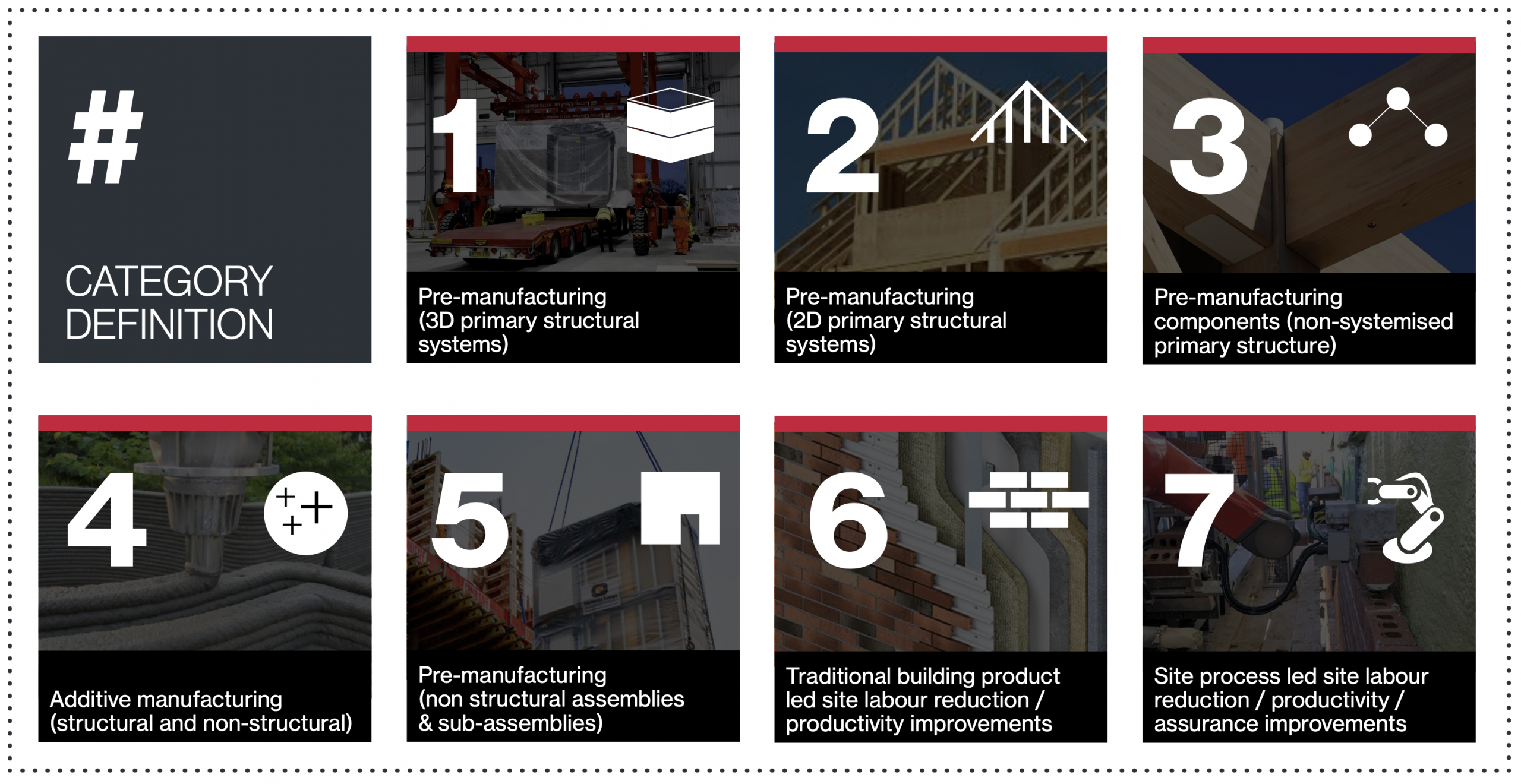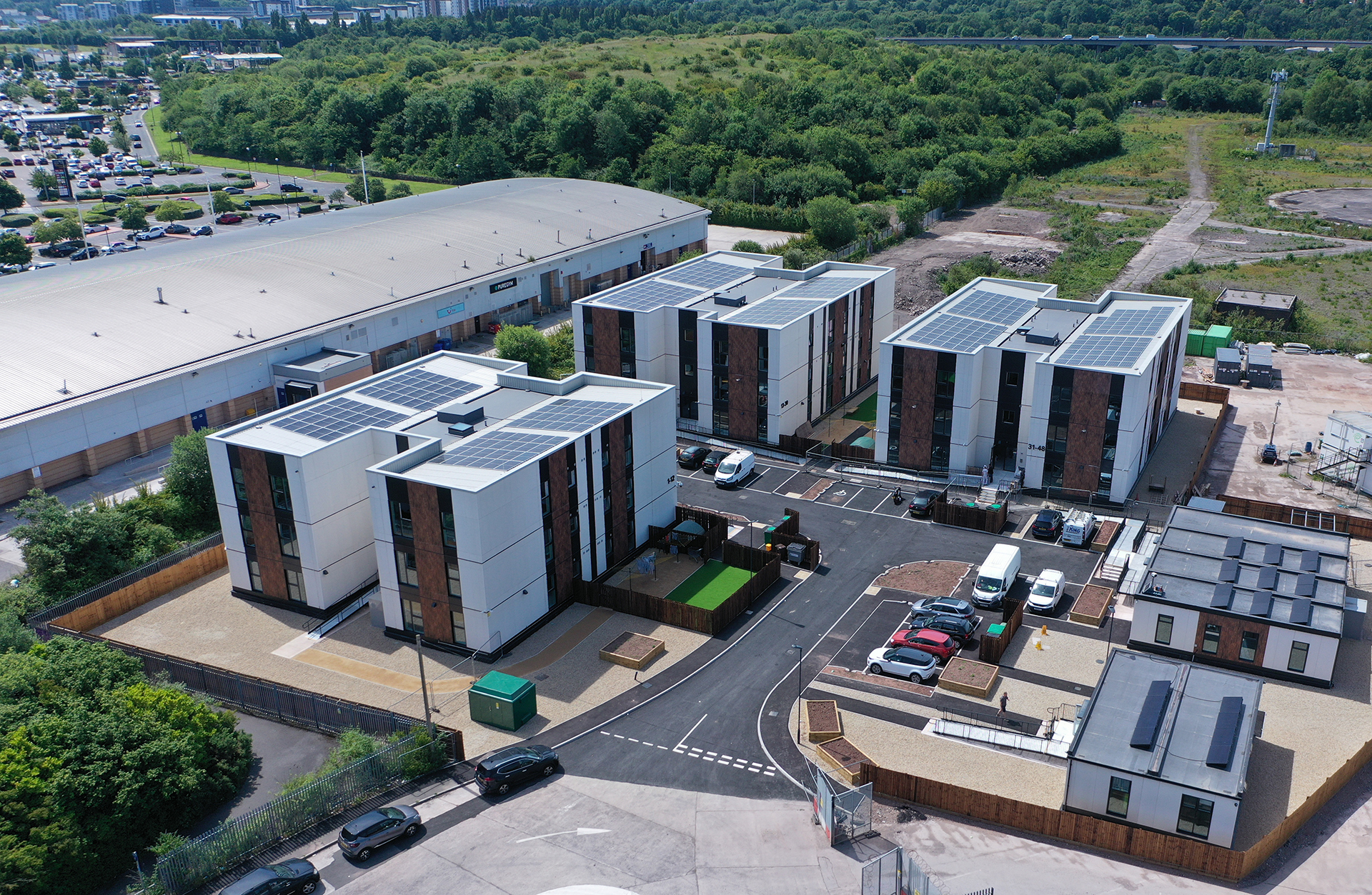Recent studies demonstrate the potential for modern methods of construction to deliver net zero new homes, says Anthony Friis
 According to the London Energy Transformation Initiative, homes in the UK generate 22 per cent of C02 emissions. To reduce these emissions there is a clear and urgent need to develop more advanced construction models that can deliver better performing homes more quickly than traditional models.
According to the London Energy Transformation Initiative, homes in the UK generate 22 per cent of C02 emissions. To reduce these emissions there is a clear and urgent need to develop more advanced construction models that can deliver better performing homes more quickly than traditional models.
Welsh Government has shown clear ambition to meet this challenge. In 2017 the Innovative Housing Programme was launched, followed by the publication of the MMC Strategy for Social Housing: Re-imagining Social Housing in Wales, in February 2020. Then in 2021 Welsh Development Quality Standards were published along with a commitment to provide 20,000 new low carbon, net zero, homes by 2026.
In 2016 Mark Farmer published Modernise or Die, a report in which he challenged the industry to do things differently. One of the key recommendations is the need to embrace modern methods of construction (MMC) if the industry is to supply the quantity and quality of housing required across the UK. As I will go on to explain, the use of MMC will be critical to the decarbonisation of construction, and to achieving the ambitions set by Welsh Government.
But what is MMC and how can it help deliver net zero homes?
Modern methods of construction is a term that covers several approaches to delivery including offsite manufacture, onsite assembly and ‘smart construction’. The MMC Definition Framework sets out a seven-category definition framework that is intended to enable a full and future-proofed range of modern methods of construction used in homebuilding to be better understood with regularised terminology. The table below provides a summary definition of each category, which mainly focus on increasing the use of pre-manufacturing in construction, but also extend to generalised process and productivity improvements on-site.

MMC Definition Framework
Net zero carbon is defined by the UK Green Building Council (UKGBC) as ‘achieving a balance between carbon emissions and carbon removal, resulting in no net release of carbon dioxide into the atmosphere’ – effectively that a new home has a net zero overall impact. It is important to recognise that there are two forms of carbon that need to be addressed when working towards net zero and that MMC can have a positive influence on both forms.
Operational carbon is the carbon created through whole lifespan of a home, mainly from the use of energy to heat and operate the home.
Design and material performance has a significant influence on these emissions. The most efficient buildings are designed to minimise the need for energy use, use higher-performing materials to minimise energy loss, and generate their own energy supply on-site. Homes that can achieve a balance between limiting the energy used and maximising the energy generated achieve the aim of being operationally net zero.
By setting the performance requirements and specifying be best materials early in the process, the right MMC solutions can be chosen to achieve this requirement. MMC products are designed and manufactured to exacting tolerances and achieve a higher quality finished product. Factory made building envelopes, in particular, provide better performance and higher airtightness which, in turn, reduces the energy used to heat a home.
Embodied carbon is produced during the manufacture, fabrication and transport of materials and products, and the installation of those materials and products on site.
Manufacturers and MMC suppliers have a greater opportunity to reduce emissions from their processes and products by engaging with their supply chain to develop low carbon materials, reduce transport movements and material waste. Factories employ locally, which further reduces the transport movements, particularly to sites across the country.
Manufacturers are incentivised to find efficiencies through continued improvement and increased output, thereby reducing manufacturing and process waste.
Transport movements to and from site are reduced as the need for the less efficient, traditional construction work on site is minimised. Projects with high levels of MMC also see faster construction programmes and better quality buildings.
Proving the case
Two recent studies have shown that MMC developments can have positive influences on our ability to decarbonise the development of new homes .
The first, a study of two UK housing development schemes which delivered a total of 879 homes under a modular system by Tide Construction, found that embodied carbon can be reduced by almost half when modern methods of construction are used. The report by the University of Cambridge and Edinburgh Napier University, titled Life Cycle Assessments of The Valentine, Gants Hill, and George Street, Croydon, found that 28,000 tonnes of embodied carbon emissions were saved from construction across the two UK housing developments, the equivalent of the CO2 absorbed by 1.3 million trees a year.

Ferry Road, Cardiff. Credit: Beattie Passive
The second, a whole life carbon assessment, conducted by construction industry analyst Cercula, of the Beatie Passive development in Ferry Road, Cardiff for Cardiff City Council, calculated that the 48 homes would save 8,880 tonnes of carbon – with 85 per cent less whole life carbon (33 tonnes vs 218 tonnes per home) compared to a traditional build – equivalent to 20,640 barrels of oil. This was achieved by designing and manufacturing to Passivhaus standards and the addition of photovoltaic panels and air source heat pumps.
The key objective of Welsh Government is to reduce carbon emissions whilst providing the right quantity of homes for Wales.
Modern methods of construction have the potential to accelerate housing delivery, drive faster progress towards zero-carbon development and presents a fresh opportunity to produce housing with lower embodied and operational carbon emissions.
MMC: a means to an end
We have seen a steady increase in engagement with MMC solutions and an understanding of the barriers and benefits to its use, particularly in tackling the need for more homes and achieving net zero. The shift to increased premanufacture will be subtle and incremental, which will see the industry achieve better outcomes such as cost and programme predictability, increased productivity and, of course, a reduction in carbon emissions.
Anthony Friis is an associate director with Cast. He has delivered residential developments using modern methods of construction for over a decade. Cast is a specialist construction consultancy providing solutions for developers, investors, policymakers and the supply chain.